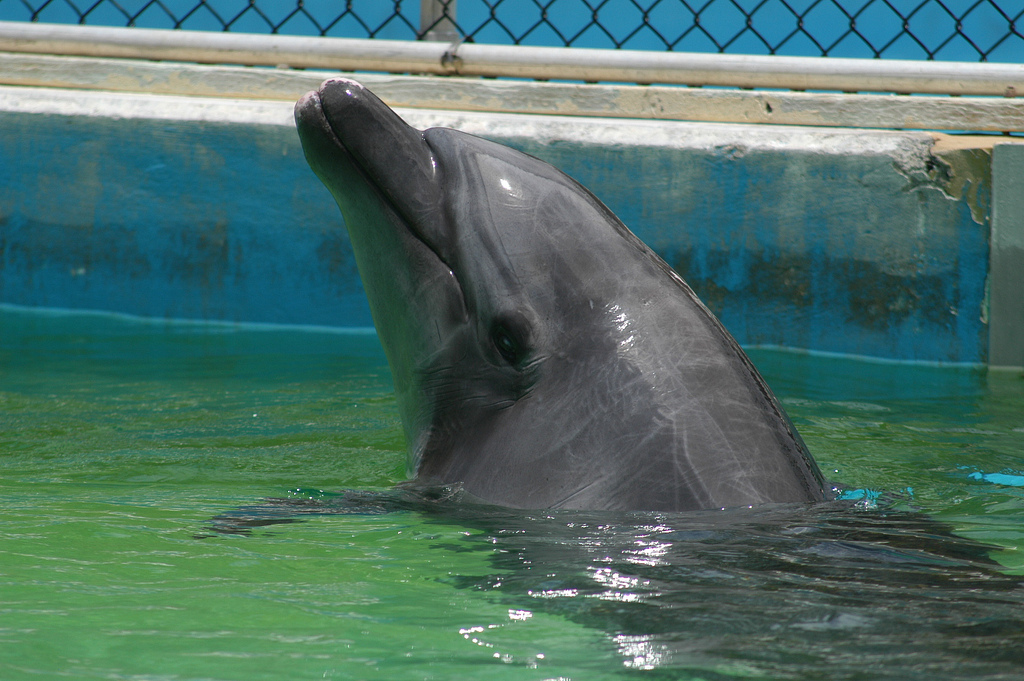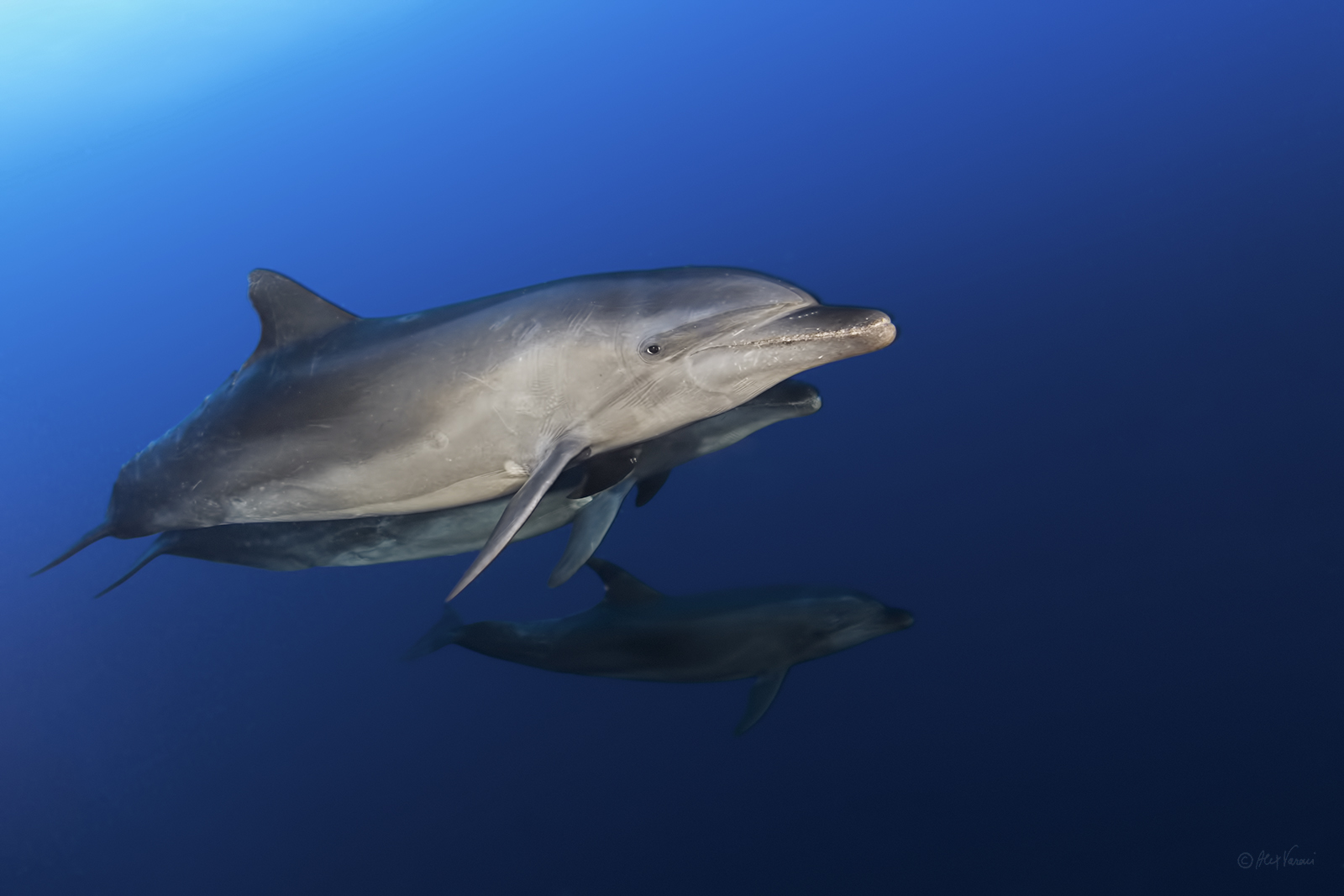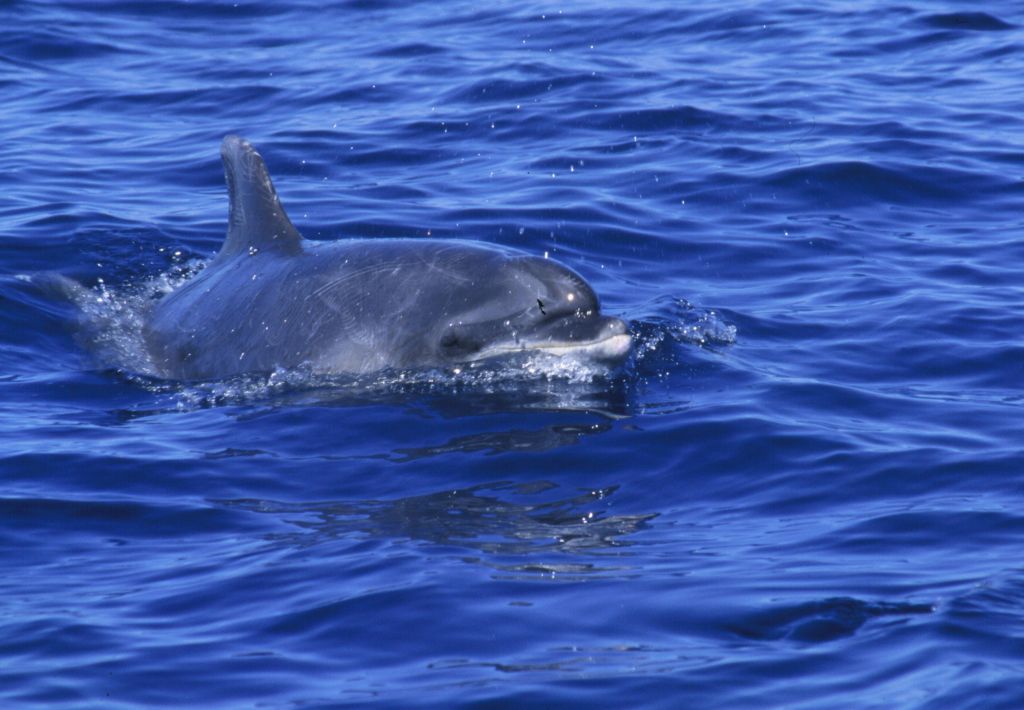
Gallery Black Sea bottlenose dolphin (Tursiops truncatus ponticus) Dolphins Green Balakans
Abstract The local Sudak-Novyi Svet (Crimea) population of Black Sea bottlenose dolphins was studied. Observations and acoustic recordings were made throughout 2014 and 2015. This study is the first in Russia to use acoustic identification of individuals based on a "signature whistle" catalog in addition to visual identification. Bottlenose dolphin signatures consisted of tonal signals.

Tursiops truncatus Bottlenose Dolphins Flickr
Black Sea harbour porpoises ( Phocoena phocoena relicta ), bottlenose ( Tursiops truncatus ponticus) and common dolphins ( Delphinus delphis ponticus) are increasingly being found stranded or dead at sea amidst floating mines laid in the Black Sea, and following the devastation caused by blowing up the Kakhovka Dam and other disasters from the o.

Grand dauphin (Tursiops truncatus) Monde Animal
Tursiops truncatus. Bottlenose dolphin (Tursiops truncatus): One of the concerns of captive breeding programs is the production of male offspring, particularly male-dominant species exhibiting aggressive behaviors, which can be difficult to manage under human care, such as gorillas (Gorilla gorilla). From: Reproductive Technologies in Animals, 2020

Dolphin. Black Sea Bottlenose Dolphin Lat. Tursiops Truncatus Ponticus. Stock Image Image of
Introduction. The common bottlenose dolphin (Tursiops truncatus) (Montagu, 1821) is often considered to be a 'cosmopolitan' species in the world's oceans (Pilleri & Gihr, Reference Pilleri and Gihr 1969) and has a worldwide coastal and offshore distribution within both tropical and temperate waters (Bearzi & Fortuna, Reference Bearzi, Fortuna, Reeves and Notarbartolo di Sciara 2006).

ФотоБлог Торгачкин Игорь Петрович © Igor Дельфин Черноморская Афалина / Tursiops
The bottlenose dolphin, genus Tursiops is one of the best studied of all the Cetacea with a minimum of two species widely recognised. Common bottlenose dolphins (T. truncatus), are the cetacean species most frequently held in captivity and are known to hybridize with species from at least 6 different genera. In this study, we document several intra-generic hybridization events between T.

Bottlenosed Dolphin Tursiops truncatus (Montagu, 1821)
Ocurrencia y distribución del delfín nariz de botella Tursiops truncatus (Montagu, 1821) en las costas de Dibulla, baja Guajira, durante el periodo de agosto a diciembre de 2005. Trabajo. and E. V. Romanenko, eds., 1997: null. The Black Sea Bottlenose Dolphin, Tursiops truncatus ponticus: Morpohology, Physiology, Acoustics, Hydrodynamics.

Tursiops truncatus Tursiops truncatus, commonly known as t… Flickr
Worldwide expansion of other Tursiops lineages would have occurred later, with expansion toward the Atlantic through Indo-Pacific coastal habitats first, and colonization of the pelagic environment later at the genesis of the T. truncatus lineage, followed by a regression to the ancestral coastal state accompanied by some of the corresponding.

Bottlenosed Dolphin Tursiops truncatus (Montagu, 1821)
Taxonomy Scientists have been long aware of the fact that the Tursiops dolphins might consist of more than one species, as there is extensive variation in color and morphology along its range.

Les tursiops Magazine Cheval / MonChval Mag Bien plus qu'un magazine sur le cheval et l
Tursiops truncatus with the common name Bottle-nosed Dolphin, belongs to the Mammals group. Toggle navigation Networks; Networks. Eionet; Network of the Heads of Environment Protection Agencies (EPA network). Tursiops truncatus ponticus Barabash-Nikiforov, 1940 Burton M. (1962) Bottle-nosed.

Dolphins (Tursiops truncatus ponticus) Ρινοδέλφινο Flickr
Abstract The article studies the bottlenose dolphin community in coastal waters of the Karadag Reserve (southeastern Crimea). Observations and acoustic recordings were carried out in 2015-2017 and 2020-2022. To identify bottlenose dolphins, we mainly used the method developed by us for acoustic recording of bottlenose dolphins by individual sound signals: signature whistles. This.

Bottlenosed Dolphin Tursiops truncatus (Montagu, 1821)
The Black Sea bottlenose dolphin ( Tursiops truncatus ponticus) is a subspecies of the common bottlenose dolphin. Recent findings suggest that they differ from the common bottlenose dolphin based on slight differences in cranial activity and genetic composition. [citation needed]

Dolphins (Tursiops truncatus ponticus) Ρινοδέλφινο Flickr
Tursiops truncatus ssp. ponticus Common Name(s): English: Common Bottlenose Dolphin, Bottle-nosed Dolphin, Bottlenosed Dolphin, Bottlenose Dolphin French: Dauphin souffleur, Grand dauphin, Souffleur, Tursiops Spanish: Delfín Mular, Pez Mular, Tursión Taxonomic Notes:

Tursiops truncatus JuzaPhoto
The bottlenose dolphin is the most common cetacean species held in captivity. It has proven highly adaptable and is easily trained. In the wild, bottlenose dolphins frequently attend fishing vessels and steal fish from nets. In some instances, solitary wild dolphins have interacted with humans for extended periods of time.

Bottlenosed Dolphin Tursiops truncatus (Montagu, 1821)
genus Tursiops. Bottlenose Dolphins in the Black Sea have been recognized as a separate subspecies, T. truncatus ponticus Barabash-Nikiforov. This subspecies differs significantly in both morphology and genetics from T. truncatus trunca-tus in the Mediterranean Sea and other worldwide locations (Natoli et al. 2005, Viaud-Martinez et al. 2008).

Dolphins (Tursiops truncatus ponticus) Ρινοδέλφινο Flickr
The subspecies Tursiops truncatus ponticusis recognized to occur in the Black Sea. Assessment Information Red List Category & Criteria:Least Concern ver 3.1 Year Published:2021

Dolphin. Black Sea Bottlenose Dolphin Lat. Tursiops Truncatus Ponticus. Stock Photo Image of
and this evidence supports recognition of a valid subspecies, Tursiops truncatus ponticus Barabasch, 1940 (Reeves and Notarbartolo di Sciara 2006). The subspecies Tursiops truncatus ponticus is endemic to the Black Sea and isolated from other populations of bottlenose dolphins in the Mediterranean and other waters (e.g., Tomilin,